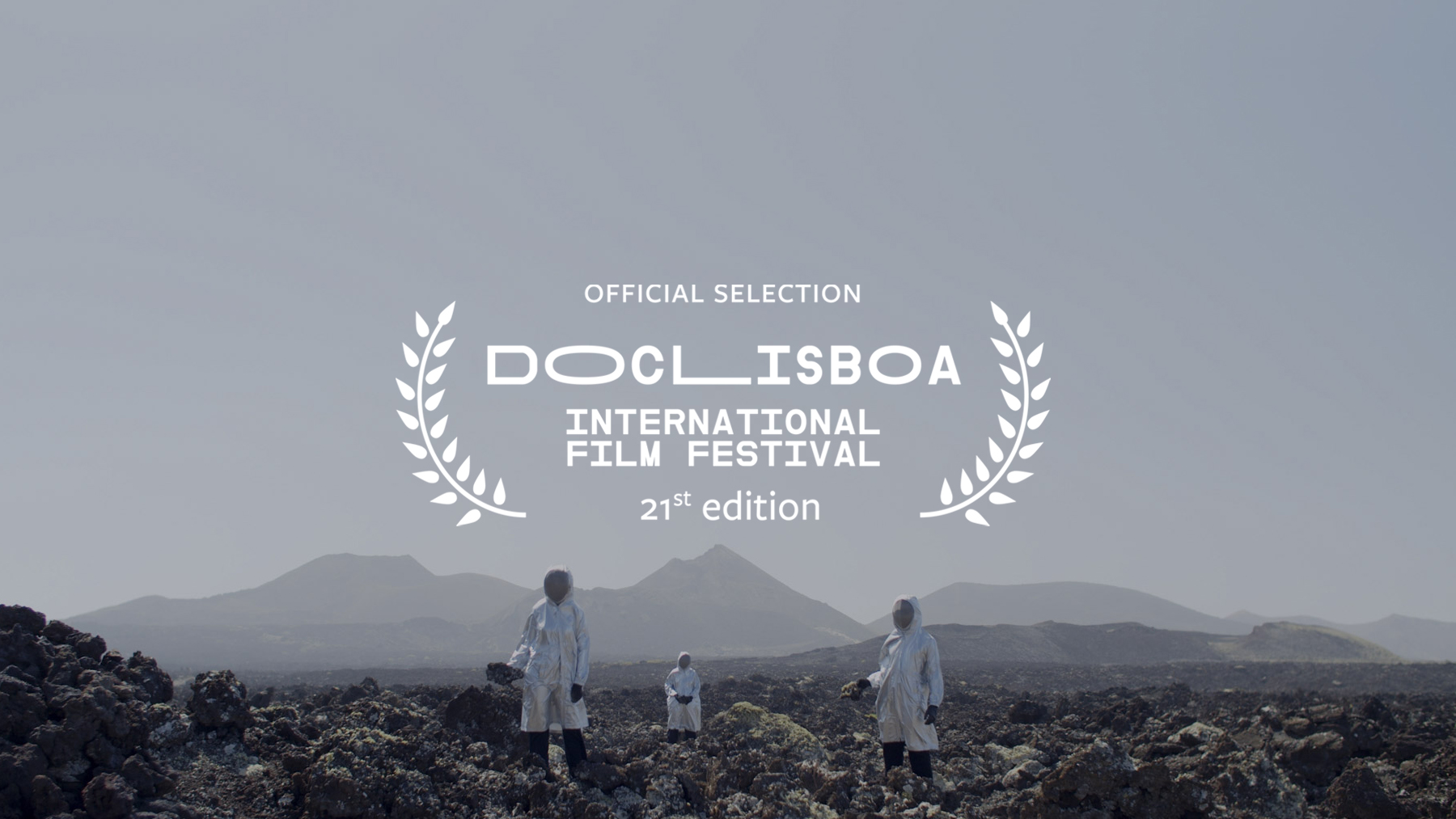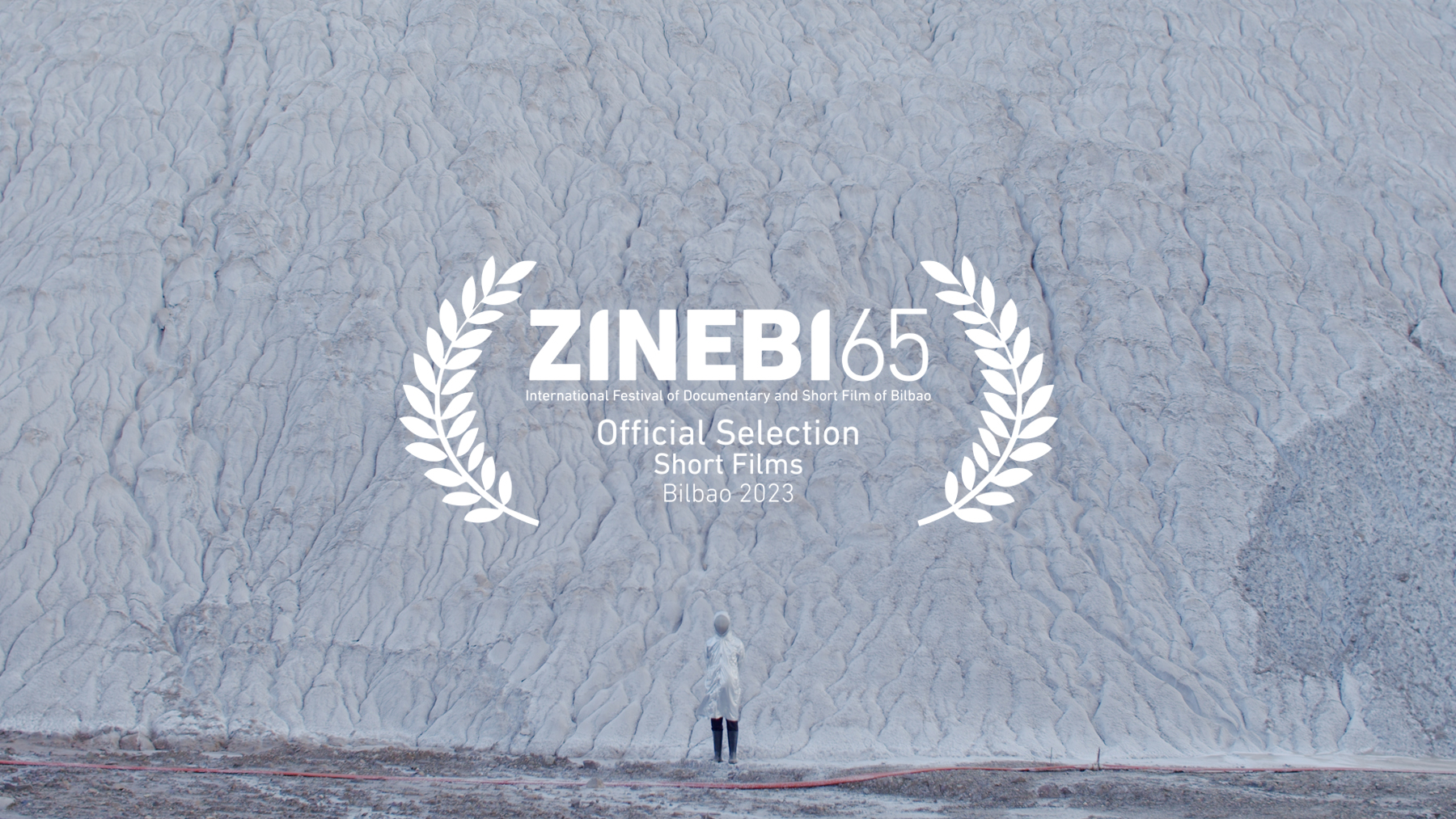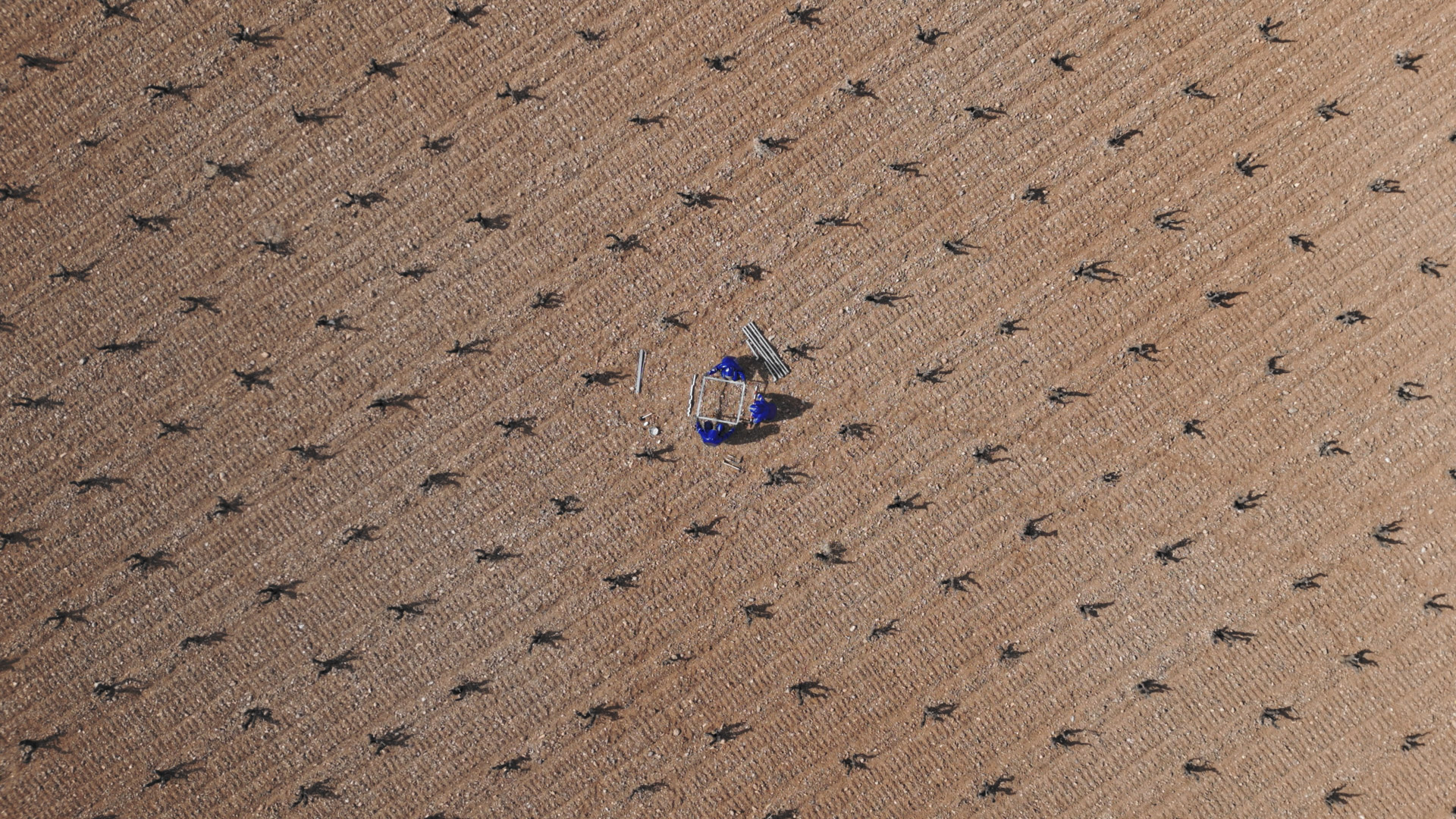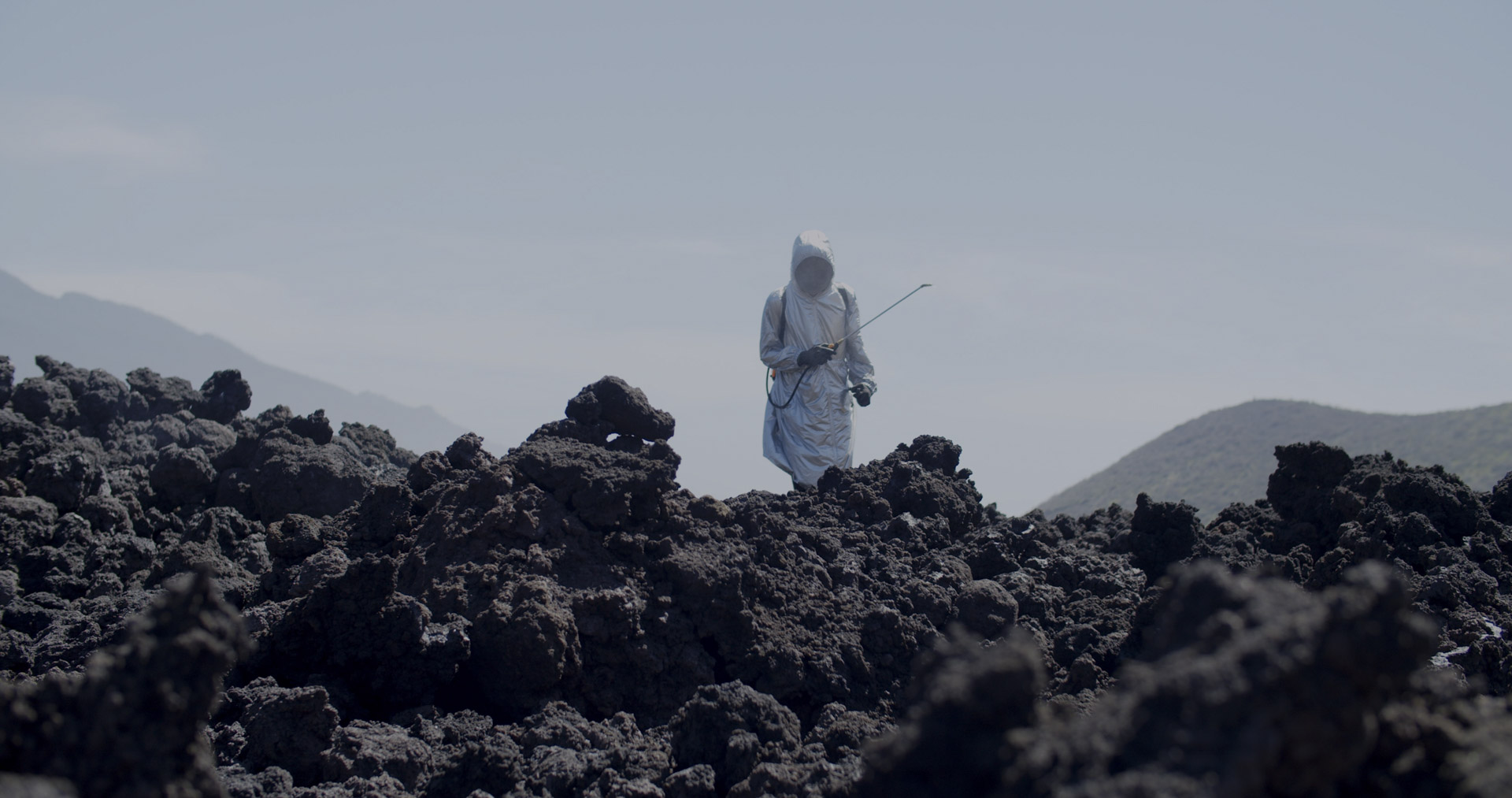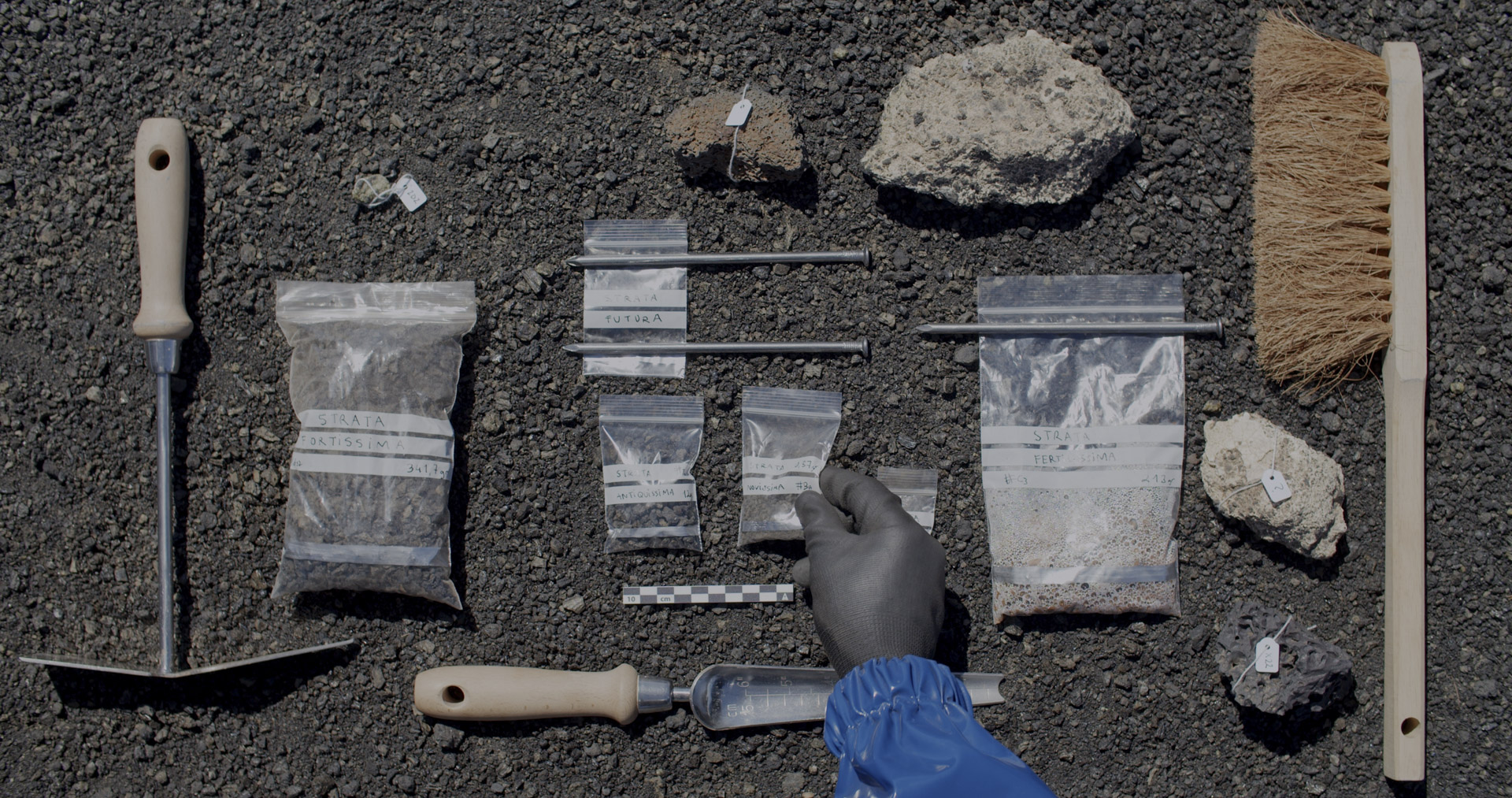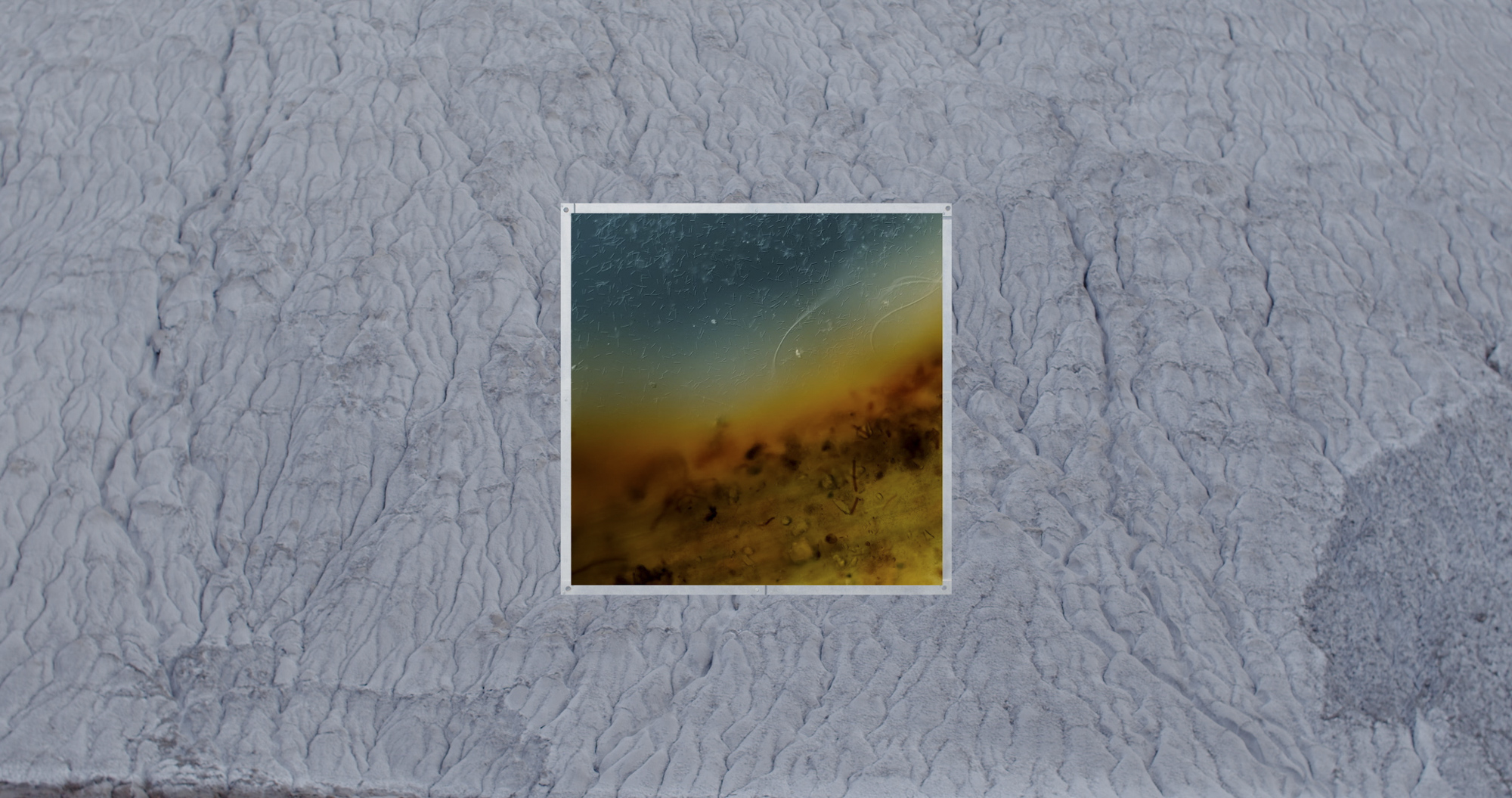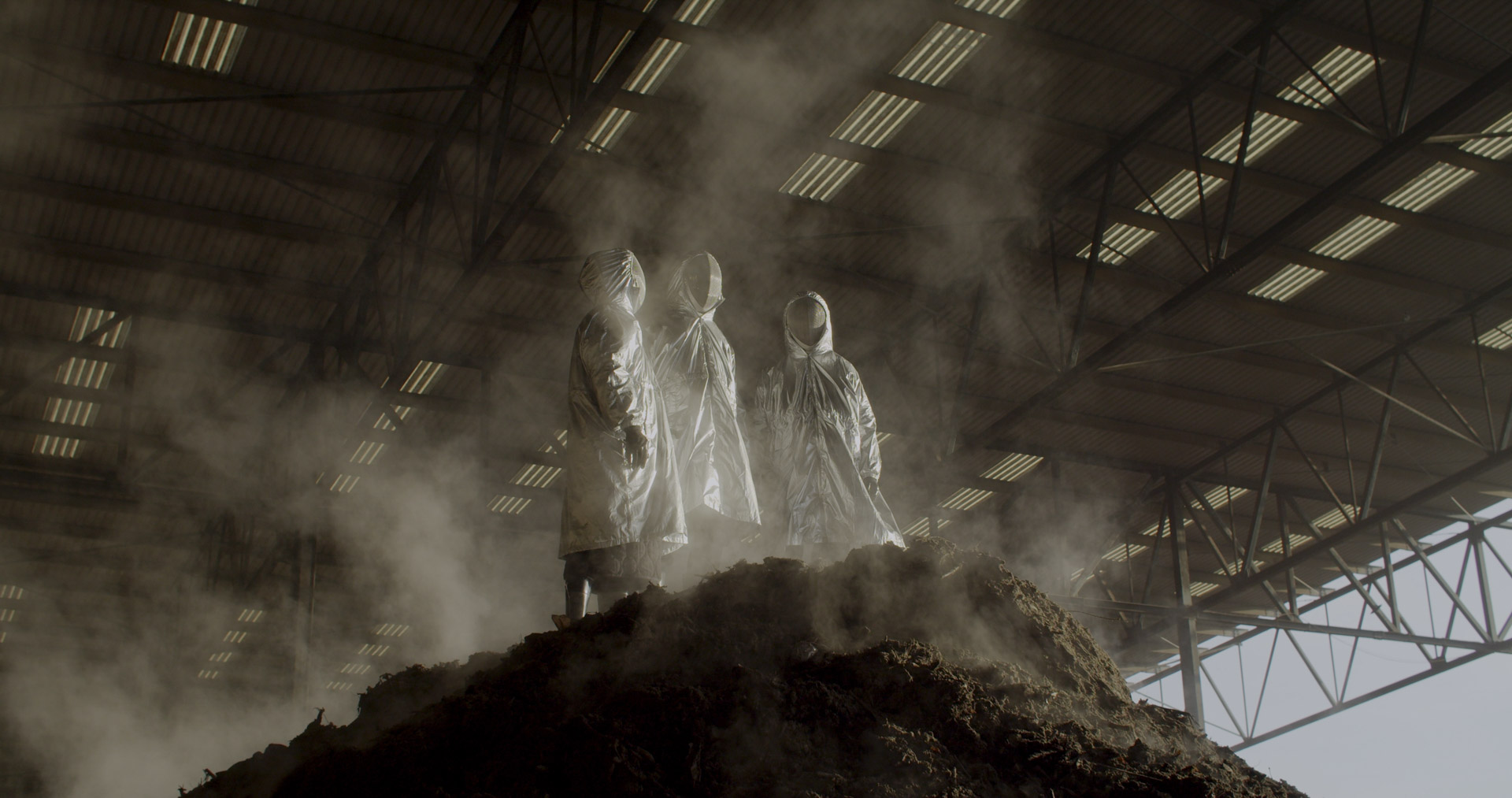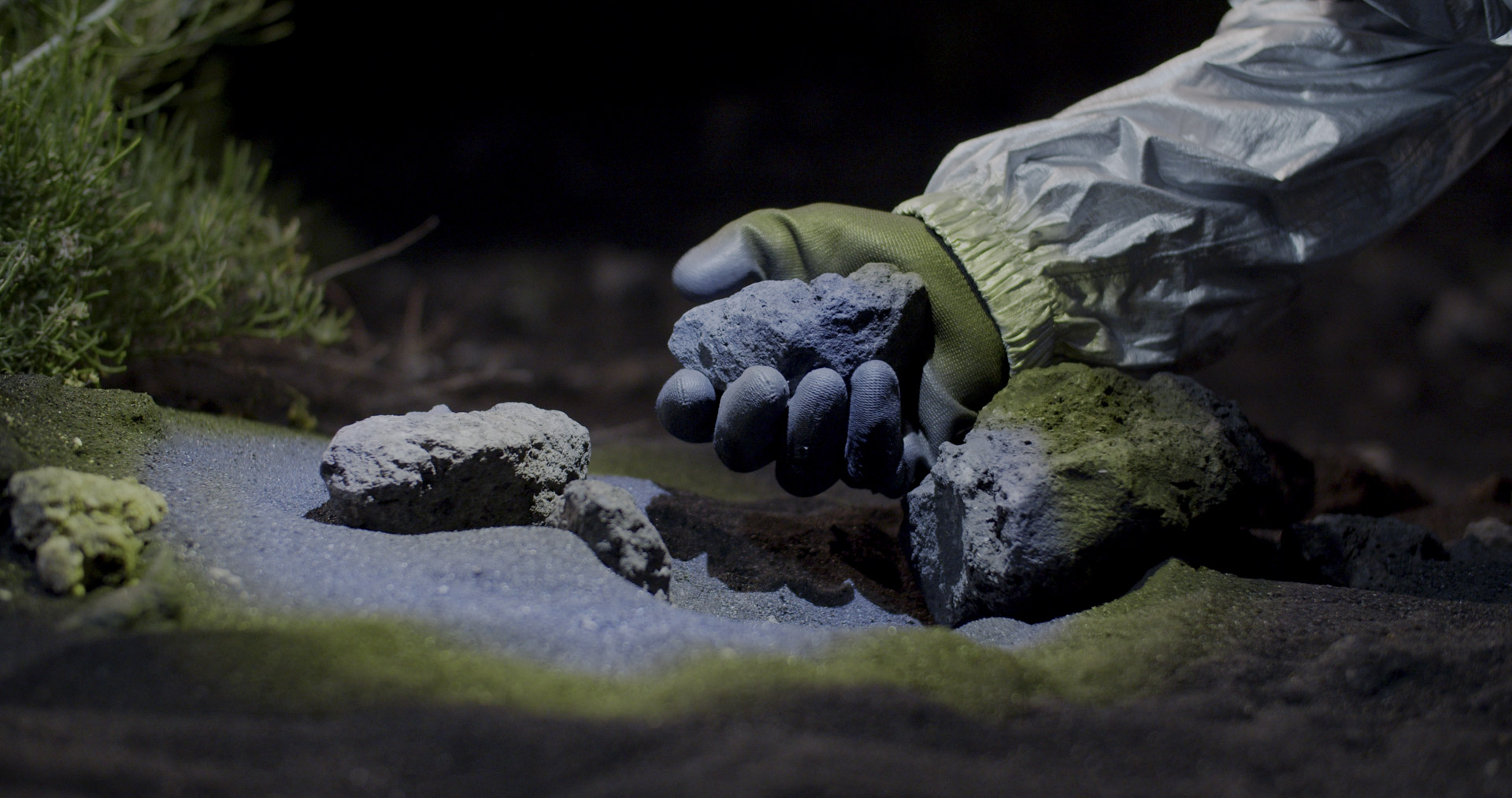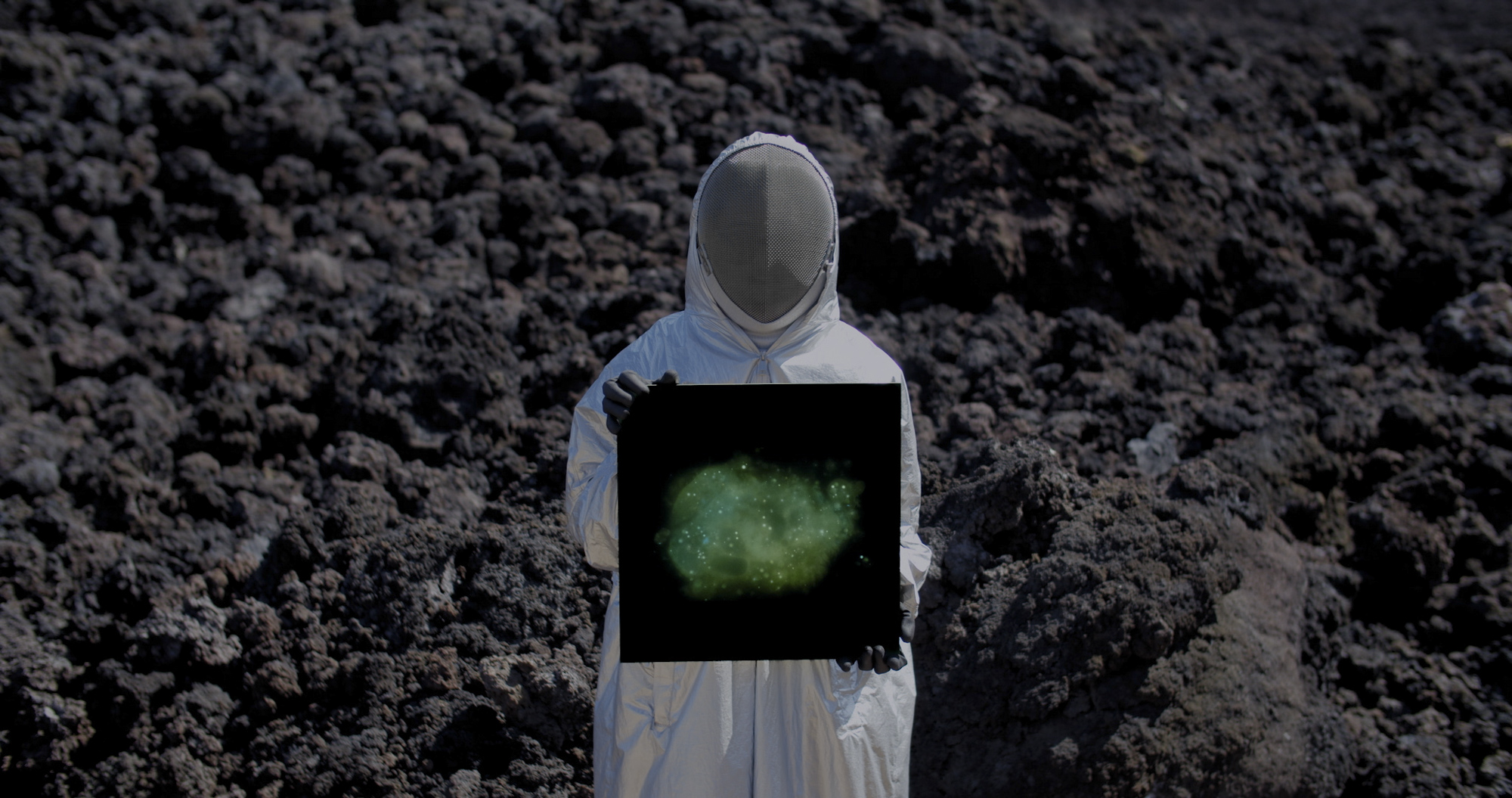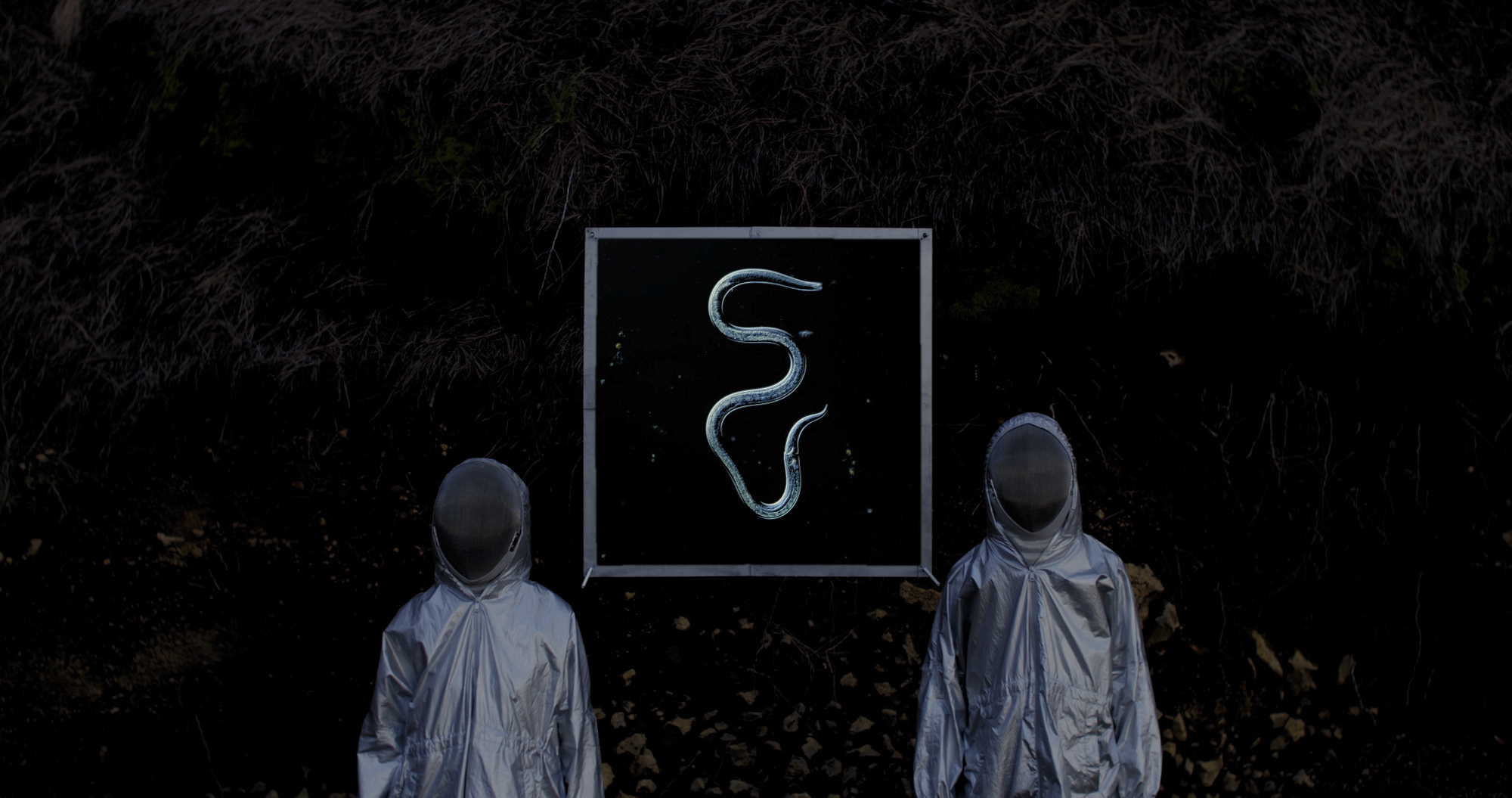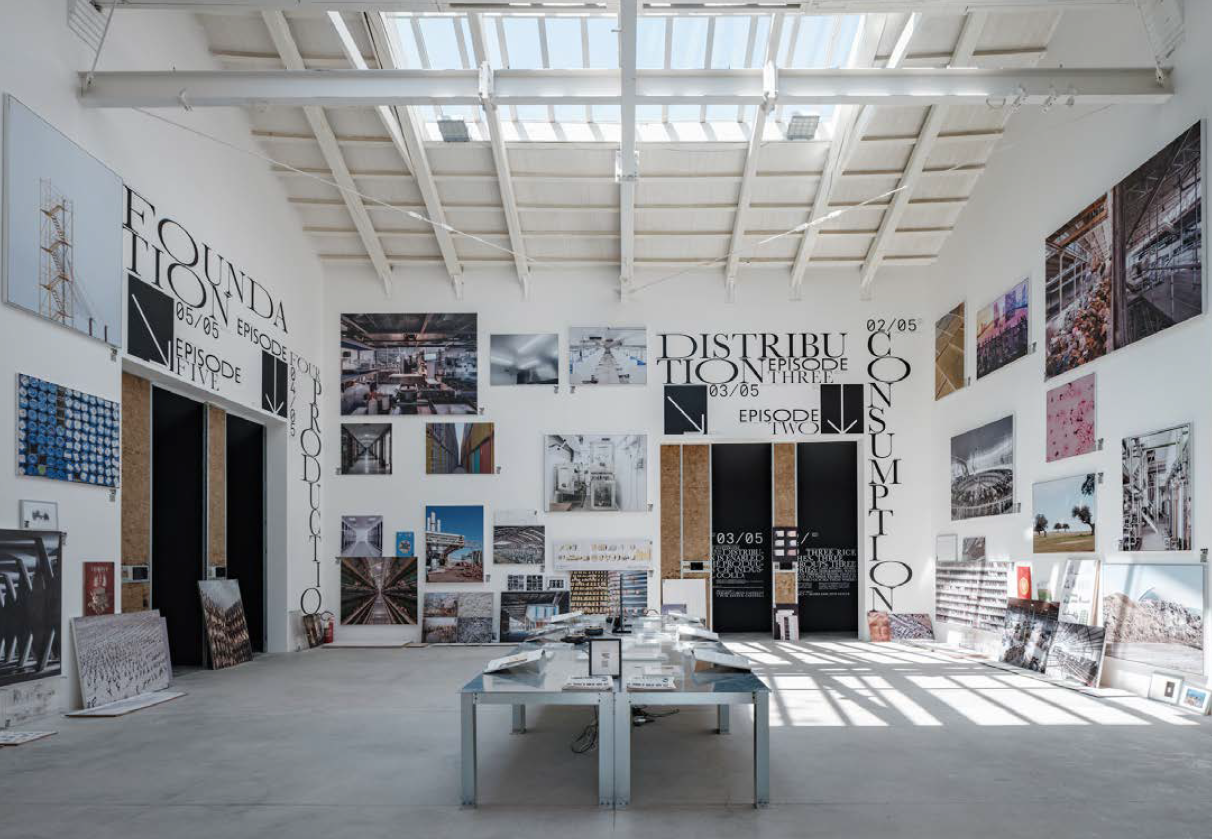STRATA INCOGNITA* is a short film commisioned for the Spanish Pavilion at the Biennale Architettura 2023: “The Laboratory of the Future” and developped as a collaboration between Grandeza Studio and Locument that looks at the soil as an infrastructure for the production of food, but also, as a somatic archive of crimes, memories, and mythologies.
Just a few centimetres under your feet, millions of creatures kill each other, eat each other, fight, reproduce and establish alliances with one another – implementing the myriad processes that recompose death into life while purifying the water you drink, making the air you breathe breathable, and growing 95% of the food you eat. You are digested soil. Any time you eat, the substances that compose soils reconstitute into the matter that shapes you. Nevertheless, many of the creatures and ecosystemic processes that make soils function resist being captured by knowledge production methods firmly bound by the regimes of the visible. Indeed, it is estimated that in a tablespoon of soil there are more living organisms than human beings on Earth, but only about 10% of small soil animals have been identified by humans.
Soil is our closest alien world.
This condition of ruthless impenetrability could explain many of the attitudes towards these ecosystems that are fundamental for our existence. On the one hand, the fiction of the ground as a dividing border – between life and death, visible and invisible, or between past, present and future – has turned the soil into a receptacle of crimes, memories and abjections, and a space for the imagination of underworld mythologies. On the other hand, foundational civilizational myths such as belonging, fertility, production, and reproduction have also been projected onto it.
Despite its cultural, infrastructural and ecosystem importance, there are still no effective legislative mechanisms for soil preservation. As George Monbiot denounces in Regenesis. Feeding the World without Devouring the Planet, “while there are international treaties on telecommunication, civil aviation, investment guarantees, intellectual property, psychotropic substances and doping in sport, there is no global treaty on soil. The implicit belief that this complex and scarcely understood system can withstand all we throw at it and continue to support us could be the most dangerous of our assumptions about the global food system”.
STRATA INCOGNITA proposes a trans-scalar and trans-temporal journey across the geographies that articulate soil as an agro-industrial infrastructure, but also as an ecosystem and a somatic archive of crimes, memories and mythologies. The film navigates the hidden landscapes that construct and destroy soils – connecting the biological and chemical processes that occur underground with the industrial production of pesticides, fertilisers and biostimulants, as well as with the geopolitical and environmental conflicts associated with their production and distribution. A compost factory, a potash mine, an ancient vineyard, a chemical fertiliser factory, mycorrhizal highways, protozoa-digesting bacteria, and the surface of recently expelled volcanic soil serve as allegorical enclaves from which to reveal the intricate complexity of soils and the dangers that beset them.
Within a transient film set design, four mysterious agents appropriate the paraphernalia of scientific laboratories and archaeological excavation sites, rearranging their associated aesthetics of truth and forensic precision into dialectical weapons for political imagination. STRATA INCOGNITA invites audiences to envision alternative ways of cultivating our relationship with soils and to unlearn the epistemic assumptions that sustain our hyper-extractive relationship with these hidden worlds that are as close as they are strange.
——————————————————-
CREDITS:
Writen and Directed by
Amaia Sánchez-Velasco, Jorge Valiente Oriol (from GRANDEZA STUDIO)
Romea Muryń, Francisco Lobo (LOCUMENT)
Collaborators
Microscopic Cinematographer: James Weiss
Sound design: Pulsar Sound Studios
Voices: Tere Vilas and Pablo Ibáñez Durán, with Benigno Moreno and Mayca Aguilera from RNE recording.
Flow of nutrients inside the arbuscular mycorrhizal network. Video courtesy of SPUN in collaboration with Dr. Oyarte-Galvez AMOLF and VU, Amsterdam
Detail of the skeletal remains of three individuals exhumed in the mass grave of Mount Estépar (Burgos). Photography courtesy of Juan Montero Gutierrez, University of Burgos
Acknowledgements
Iván Cabrera and Víctor Ortega Ramos, from the Instituto Volcanológico de Canarias, for sharing their drone recordings over the Tajogaite crater.
Carola and Jonas Carlsson, from Farmerrain, for the costumes.
Jesús Isiegas Mainar, from Consejo Regulador de la Denominación de Origen Protegida Cariñena, for sharing his knowledge of the region with the team.
Toby Kiers and Kelcie Walther, from SPUN, for sharing their knowledge and audiovisual resources from the mycorrhizal world with us.
Rufina Santana, from Curbelo Santana Foundation, for her support in the search and selection of locations in Lanzarote, and for giving us permission to film in their lands.
Abel Torrelles, from Compost Segrià, for opening us the doors of the Lleida composting plant.
Thanks
Ana Ara, Charo Baguena Felipe, Reme Fernández Gómez and Amaya Serrano Baguena for opening the doors of Cariñena for us.
Ciro Cabal for sharing his root research and introducing us to the concept of necromass.
Juan Carlos Castro-Dominguez, from the Fab Lab of the University of Alicante, for his support in the manufacture of props.
Alfonso García Díez and Denise Perpen for their logistical support from Barcelona.
Antonio Mainar Royo and Luis Martín González for granting us the use of their vineyards for filming in Cariñena.
Crístofer Pérez Díaz, from La Palma Film Commission, for his support with the filming permits.
Michel Daniel Pérez Guillén, Environmental Agent of the Cabildo de la Palma, for guiding us in the area of exception of the Tajogaite Volcano.
Nathalie Rompillon for her support in the purchase of masks.
——————————————————-
Strata Incognita is part of the FOODSCAPES project. Pavilion of Spain. Biennale Architettura 2023: The Laboratory of the Future.
Commissioned by the Government of Spain through the Directorate-General for Urban Agenda and Architecture of the Ministry of Transport, Mobility and Urban Agenda (MITMA), Acción Cultural Española (AC/E), and the Spanish Agency for International Development Cooperation (AECID).
Curated by Eduardo Castillo-Vinuesa and Manuel Ocaña.
Project management by Ana Ara.
